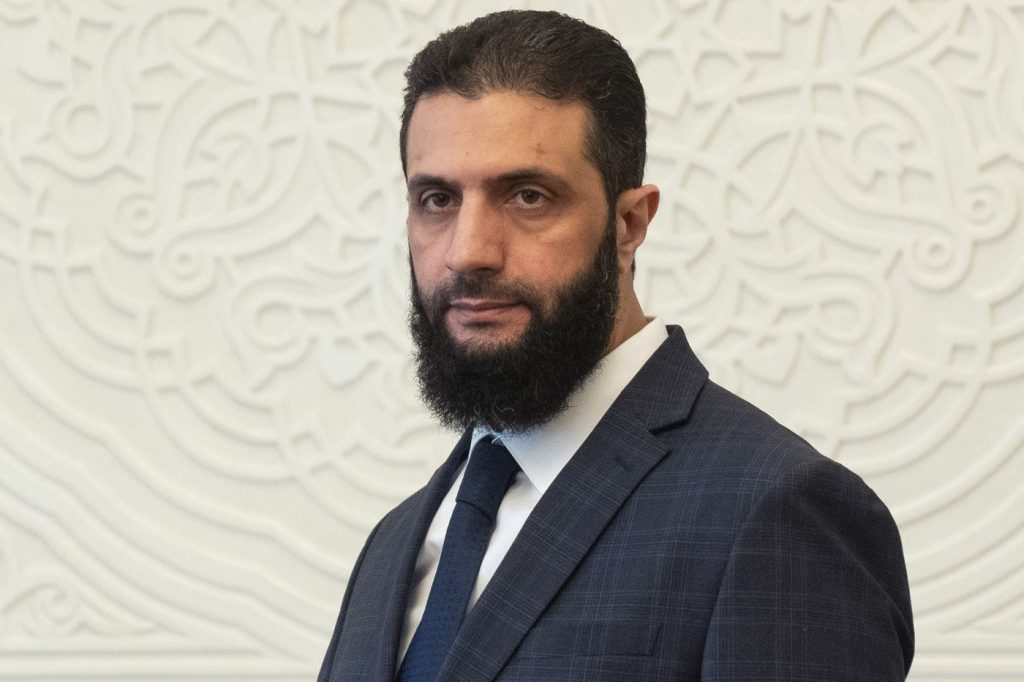DUBAI, United Arab Emirates (AP) – Ahmad al-Sharaa, Syria's interim president, undertook his first foreign trip on Sunday, visiting Saudi Arabia. This visit signals a potential shift in Damascus' alliances, moving away from Iran, which has long been Syria’s main regional ally.
Al-Sharaa, known internationally as Abu Mohammed al-Golani and previously aligned with al-Qaida, was accompanied by Asaad al-Shaibani, the government’s foreign minister. A photo released by the state-run SANA news agency depicted the two men on a jet, likely provided by Saudi Arabia, with a Saudi flag visible in the background.
Saudi state television emphasized the significance of al-Sharaa’s trip, marking Riyadh as his first destination. Saudi Arabia had previously backed various insurgent groups aiming to overthrow former President Bashar Assad following Syria's Arab Spring protests in 2011. However, those efforts failed as Assad, with support from Iran and Russia, fought the war into a stalemate.
The dynamics shifted with a December offensive led by al-Sharaa’s Hayat Tahrir al-Sham (HTS), a group that once had ties to al-Qaida but has since disavowed them. Al-Sharaa and HTS have meticulously crafted their public image, with al-Sharaa adopting a military style reminiscent of Ukrainian President Volodymyr Zelenskyy, appointing women to influential positions, and endeavoring to nurture connections with Syria's Christian and Shiite Alawite communities.
Moreover, al-Sharaa's strategy involves keeping both Iran and Russia at a cautious distance. Iran has yet to reopen its embassy in Damascus, which was crucial for coordinating the so-called “Axis of Resistance,” including Assad’s Syria and Lebanon’s Hezbollah militia. Russia, for its part, continues to seek access to its air and sea bases in Syria while grappling with its historic ties to Assad.
These strategic moves appear aimed at reassuring Western nations and navigating the complex landscape of sanctions imposed on Syria. The financial requirements for rebuilding Syria, which has been ravaged by over a decade of conflict, are estimated to reach hundreds of billions of dollars, alongside addressing the urgent needs of millions of impoverished Syrians.
In January, Saudi Foreign Minister Prince Faisal bin Farhan visited Damascus and stated that Riyadh was engaged in dialogues to alleviate sanctions on Syria. Unlike Turkey and Qatar, which are key allies of al-Sharaa, Saudi Arabia reestablished relations with Assad in 2023, in line with a broader trend among Arab nations. Lifting sanctions could significantly enhance Saudi-Syrian relations.
Nevertheless, Syria’s interim government continues to contend with threats from the Islamic State group and other militant factions within the country. Recently, a deadly car bomb exploded in Manbij, located in Syria's Aleppo governorate, resulting in the deaths of four civilians and injuries to nine others, as reported by SANA, citing civil defense officials. Manbij was captured by Turkish-backed Syrian rebels in December as part of Turkey's strategy to secure a buffer zone along its border.











